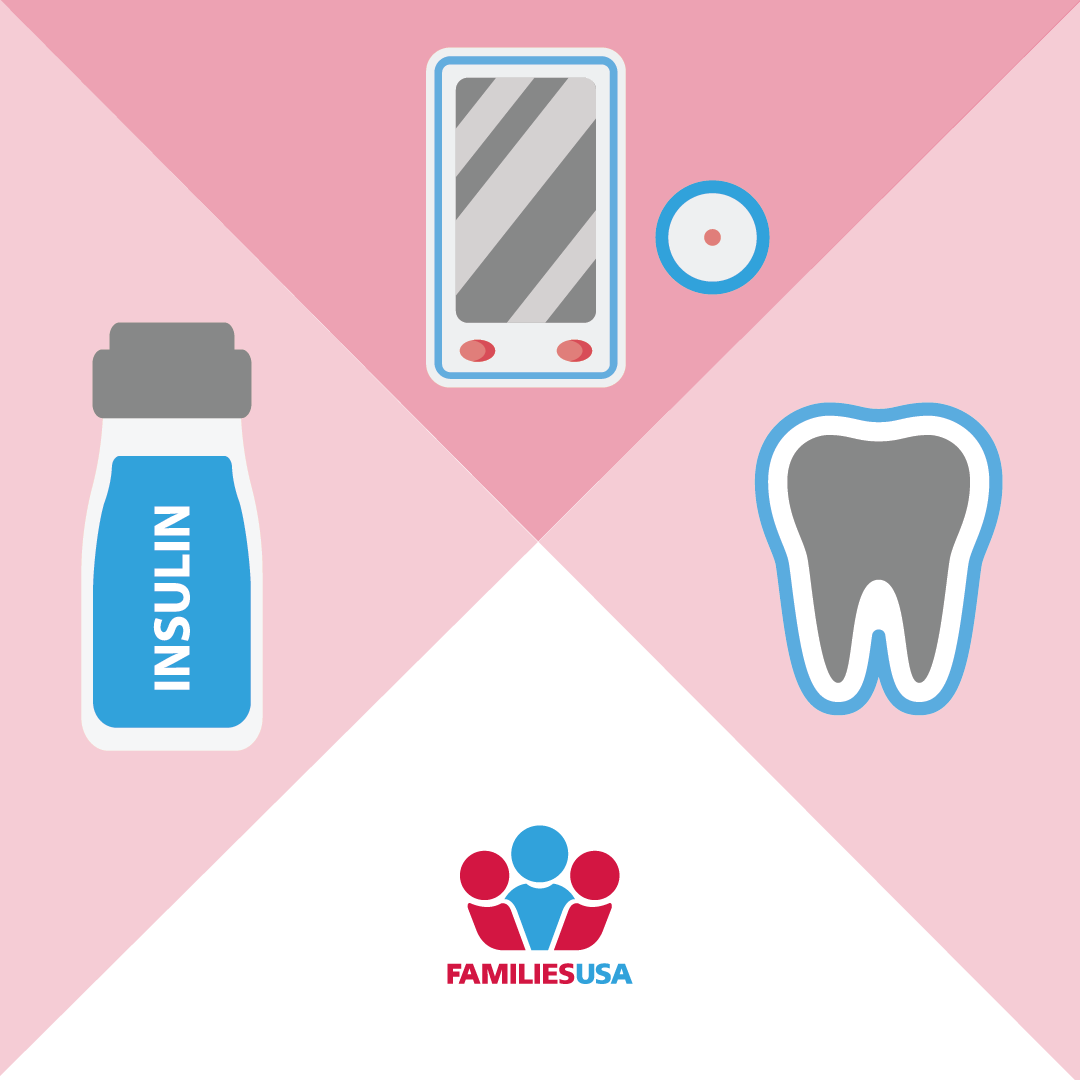November Is Diabetes Awareness Month
11.14.2025
Every November, Diabetes Awareness Month is observed to raise awareness about the impact of diabetes, a chronic disease that affects millions of people in America. There are multiple types of diabetes including type 1, type 2, and gestational diabetes (which occurs during pregnancy), which may result in varying complications and health outcomes. Nationally, more than 38 million Americans (or nearly 12% of the population) have diabetes, including children. More concerning, the American Diabetes Association (ADA) estimates that 97 million individuals in the U.S. are prediabetic.
Vast disparities exist in the prevalence of both diagnosed and undiagnosed diabetes among racial and ethnic minority groups and communities with low socioeconomic status. As we know, the social drivers of health (SDOH) are significant predictors of our short and long-term health outcomes. For people living in areas that are food and health care provider deserts, and have lower educational attainment, the prevalence of diabetes is higher. And even with greater federal and state investment in prevention programs, the prevalence of diabetes continues to grow, which is unacceptable.
In addition to highlighting resources, calls to action, and recent policy wins below, we also urge everyone to remember that there is an inequitable divide in the allocation of health resources across the U.S. At Families USA we are advocating for improvements to health coverage, access, and affordability for all those diagnosed, undiagnosed, and prediabetic to receive the best possible care. We encourage you to use the images below to promote Diabetes Awareness Month and World Diabetes Day on November 14.
 |
 |
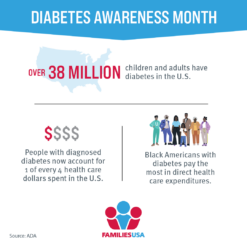 |
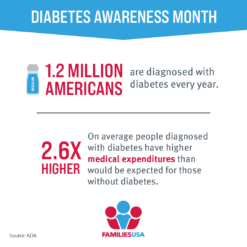 |
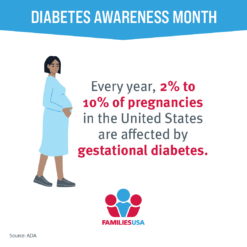 |
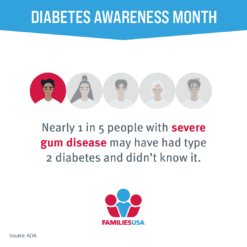 |
Maternal and Child Health
Many efforts to combat diabetes focus on older populations, but women of reproductive age and children are also heavily impacted by the disease. Nearly 9% of all pregnant people in the U.S. are diagnosed with gestational diabetes, which affects the health of both parent and baby.
One way to help manage diabetes is through the use of a continuous glucose monitor (CGM), a temporary medical device that attaches to the body to continuously estimate and report blood sugar (glucose) levels, so doctors and patients have data to make informed decisions about their health. Despite the efficacy of CGMs and their ease of use, CGMs can be expensive, difficult to obtain and are often not covered by insurance. State Medicaid programs must expand access to CGMs to all adults and children with diabetes on insulin, including pregnant women with gestational diabetes, to ensure that they are more accessible to those who need it most. Want to learn more about CGMs? Check out these resources below.
- Better Health, Stronger Families: Improving Medicaid Coverage of Continuous Glucose Monitors in Alabama (Families USA)
- Help Alabama Families Impacted by Diabetes: Increase CGM Access (Families USA)
- Gestational Diabetes Information (ADA)
- Glucose Monitoring During Pregnancy Fact Sheet (ADA)
- CGM Fundamentals (CHCS)
- Accelerating Access to Continuous Glucose Monitors in Medicaid to Improve Diabetes Care (CHCS)
- Continuous Glucose Monitor Access for Medicaid Beneficiaries Living with Diabetes: State-By-State Coverage (CHCS)
Oral Health
Oral health is a vital part of managing our overall health. Anyone can develop gingivitis (early-stage gum disease) or periodontitis (advanced gum disease). For those living with diabetes, problems with teeth and gums are more common meaning the risks to health are much greater, making access to affordable health coverage even more important.
Unfortunately, those who rely on Medicare have no access to oral health coverage, states have a patchwork of coverage options, and many in private coverage are still without affordable options — leaving millions without the coverage they need. At Families USA, our Oral Health for All Campaign focuses on adding oral health coverage to Medicare, which currently excludes dental care, and improving states’ Medicaid adult oral health coverage. Now that Medicare Open Enrollment has started, this is a good time to check your Medicare benefits and remember, oral health IS health!
- #MouthsinMedicare (Families USA)
- Oral Health Care’s Equity Conundrum — Essential for All, Out of Reach for Many (Families USA)
- Oral Health and Diabetes (CDC)
Rx Drug Pricing
One of the ways in which diabetes can be managed is through insulin, which controls blood sugar (glucose) levels. Unfortunately, insulin prices have risen to untenable heights that make it difficult for people to afford not only in the U.S., but globally. For individuals on Medicare, the cost of insulin is now capped at $35 per month (for all Part D plans) and drug costs are capped at $2,000 annually due to changes made by Inflation Reduction Act (IRA). That same law has made it possible for Medicare to negotiate the prices of Ozempic and Wegovy, which will have lower prices starting in 2027. While this will help millions of Americans, it still leaves far too many without affordable access to potentially life-saving medication. Read more from our stories below, and consider sharing your own.
- Insulin Cost and Affordability (ADA)
- Insulin Shortages and the High Costs of Survival — Antrionette’s Story
- Sacrifices for Insulin: A Tale of Two Sisters — Sa’Ra’s Story
- Crossing International Waters for Insulin — Deidre’s Story
- A Shock at the Pharmacy Counter — Robin’s Story
Webinar
Watch our latest webinar on protecting diabetes care coverage and progress, featuring personal stories and a panel discussion.
If you can, consider helping to raise awareness this November by reading, sharing and posting any of our resources so that your networks can be more informed.


